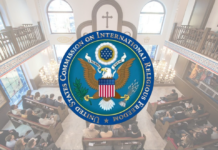A social media campaign on X erupted on Thursday with thousands of posts detailing alleged injustices in teacher recruitment interviews conducted by Turkey’s Ministry of National Education.
The hashtag #MEBdeMülakatFaciası (Interview Scandal at the Ministry of Education) quickly gained traction, as candidates shared personal accounts of being unfairly eliminated despite high exam scores.
The controversy revolves around the two-stage recruitment process for public employees, such as teachers, where candidates are evaluated through the Public Personnel Selection Examination (KPSS) and subsequent interviews. While the KPSS provides an objective score, the interview process conducted by regional committees introduces subjective evaluations. Critics allege these committees disproportionately lower overall scores for some candidates, pushing them out of hiring contention despite strong KPSS results.

One candidate, identified only as Ümit, shared that their ranking fell from 224th to 322nd due to a low interview score, excluding them from the hiring quota. “You stole my right, my child’s future,” they said.

Another candidate reported dropping from 362nd to 919th after the interview score.

Nurşen Eken Kılınç, a teacher, expressed frustration over the system, stating, “I know how much effort goes into these exams. Yet, after all that, your score is overshadowed by the interview and you’re eliminated. Why? Because of unfair scoring by the committees! Is this justice?”
The frustration and complaint stems from the belief that years of effort preparing for the KPSS may be negated by opaque and inconsistent interview scoring. Many candidates and others have made accusations of favoritism, undermining meritocracy and trust in public service recruitment.
Education Minister Yusuf Tekin has defended the interviews, supporting their necessity to select appropriate candidates. He highlighted measures like recording interviews and maintaining documentation to ensure fairness. Critics remain unconvinced, arguing these measures are insufficient to address systemic bias. The social media campaign has amplified demands for reform, with many calling for the interview process to be abolished entirely.
Partiality in the appointment of public service employees in Turkey has long been a contentious issue, sparking widespread criticism and debate. Allegations frequently surface about the prevalence of nepotism and patronage in the hiring process for various public sector positions, including those in the judiciary, education and civil service.
Critics argue that these practices often lead to the selection of candidates based on personal connections or political affiliations rather than qualifications and competence. The issue has increasingly eroded public trust in government institutions and prompted calls for reform.















